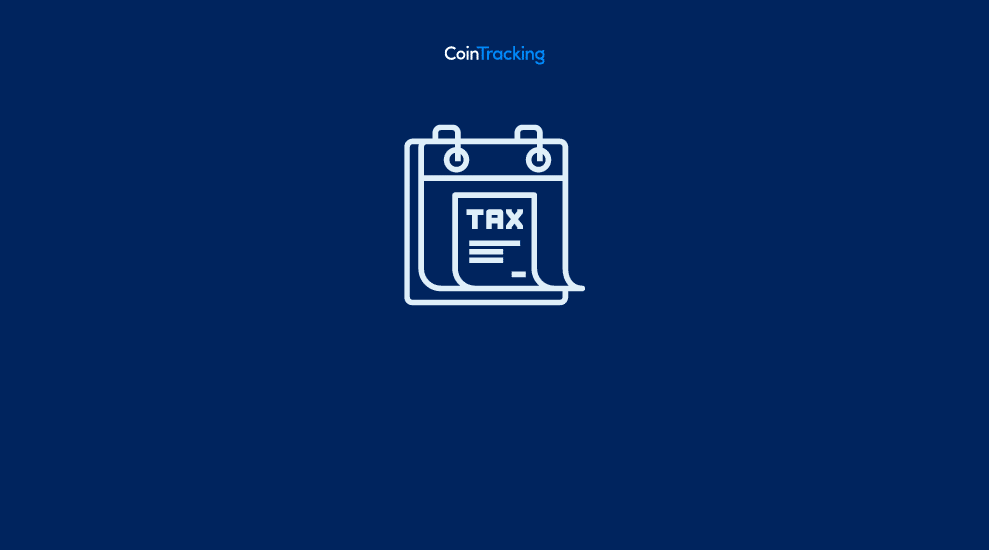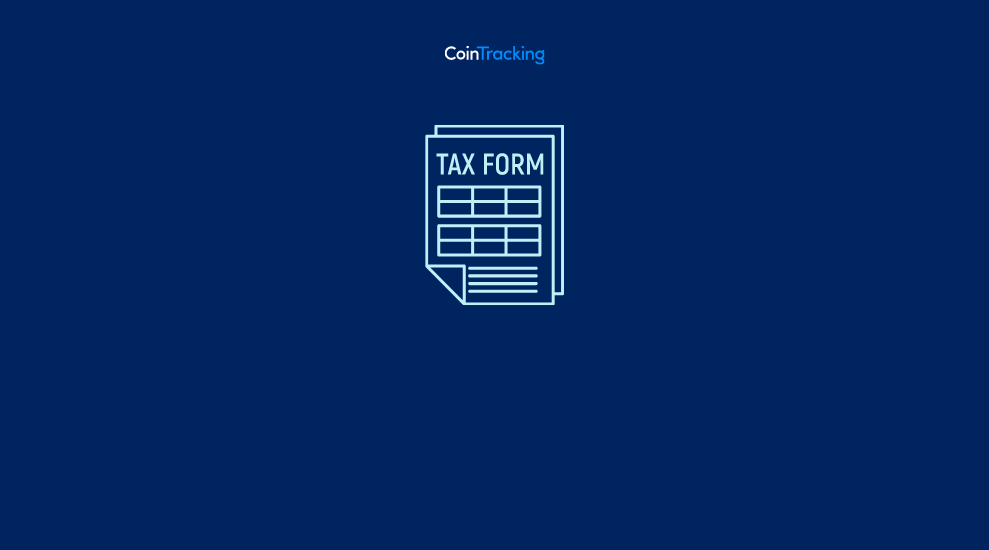How to Avoid Crypto Taxes! – 10 Tips to Reduce Taxes [2024]
18 Jan, 2024 · 37 min read
Investors in the US can avoid crypto taxes with a series of legal strategies, mostly by reducing capital gains from trading.
In this guide, we’ll provide the best tips to reduce crypto taxes, from using crypto tax loss harvesting to more significant measures like moving to a crypto-tax-friendly country.
Crypto taxes in the US
Crypto taxes in the US can be categorized by capital gains taxes and income taxes, depending on the type of crypto activity you conduct.
Crypto trading is taxed at a capital gains level, where you have to determine the gain/loss on each trade and pay the appropriate tax rate between a short-term and long-term one.
Income, like crypto airdrops, hard forks, staking rewards, crypto interest, or salaries, is taxed at an income level in the US, with rates according to your taxable income tax bracket.
Is avoiding crypto tax legal?
You can legally avoid crypto taxes with several tax optimization strategies, from crypto tax loss harvesting to more drastic changes like moving to a crypto-tax-free country.
How to not pay taxes on Bitcoin
There are some tax free events involving Bitcoin, including:
- Buying Bitcoin with FIAT as many times as you want;
- Holding Bitcoin (without selling any of it) for however long as you want;
- Transferring Bitcoin between personal wallets;
- Donating Bitcoin;
- Gifting Bitcoin.
How to not pay taxes on crypto
You do not have to pay taxes on crypto on some transactions, and you can lower your crypto taxes by employing other strategies.
You can buy any cryptocurrency with FIAT, hold any cryptocurrencies, or transfer any tokens between personal wallets without incurring any taxable event.
4 ways to legally avoid paying crypto taxes
Discover the top 4 ways to legally avoid paying crypto taxes:
1. Buy crypto and don’t sell
In the US, if you buy crypto and don’t sell any portion of it during the tax year, you won’t have to report it nor pay taxes on it.
You’ll even be able to answer “No” to the crypto question on Form 1040 (US Individual Income tax Return).
If you’re a long-term investor, one of the best ways to optimize your crypto taxes is to hold them for over 12 months or in retirement accounts. When you cash out your gains, you’ll pay fewer taxes.
If you are using a Dollar Cost Average (DCA) strategy, where you buy crypto every month for a fixed amount (e.g., $500), you’ll keep increasing your portfolio while not having to pay taxes during the accumulation phase.
2. Hold crypto
Holding crypto is not a taxable event in the US or other countries. If you buy crypto and simply hold it, you won’t have to report it or pay taxes from it.
Imagine that you bought bitcoin and a few years later sold some of it. But, for the majority of your portfolio, you decide to just hold it.
The year after the sale, you’ll pay taxes on the gain, but for the other years, you won’t have to pay any more taxes until you end up selling.
3. Transfer crypto between personal wallets
Transferring crypto between personal wallets is a crypto-tax-free event in the US and most countries.
If you move your holdings from one personal wallet to another, you won’t have to report those transfers nor pay taxes on them.
You may have to spend some crypto to transfer it, and those fees are not tax deductible, but you won’t have to pay taxes.
Remember, if you sell any portion of your crypto, you’ll have to report it on your tax report and pay taxes on it.
4. Gift cryptocurrencies
Gifting cryptocurrencies is not a taxable event in the US. You can gift crypto to a friend or family without extra reporting if you don’t cross the limit of $15,000 for each recipient.
If you gift more than $15,000 worth of crypto in a tax year, you’ll have to report it on Form 709.
How to pay zero taxes for crypto transactions
In the US, you can pay zero taxes for crypto in some transactions, such as:
- Transferring crypto between wallets: You can transfer cryptocurrencies between personal wallets as many times as you want without facing any taxable event in the US.
- Buying any crypto with FIAT: You can buy cryptocurrencies with FIAT (e.g., USD) at any time and in any amount without having any taxable event.
- Buying any NFT with FIAT: As with cryptocurrencies, you can buy any NFT with FIAT without having any taxable event.
- Hold crypto: Holding crypto is not a taxable event in the US as long as you don’t sell any of your holdings.
- Gifting crypto: You can gift crypto to your friends and family without paying taxes over it if you don’t exceed the annual gift tax exclusion limit.
- Earning debit/credit card cash back rewards: If you use a crypto debit or credit card for purchases and earn some cash back rewards in crypto, it’s not a taxable event. You don’t need to report the rewards as taxable income.
Here’s how to pay zero on your crypto taxes (top tips!):
How to reduce your crypto taxes
The top 7 ways to reduce your crypto taxes
In the US, there are different ways to postpone or reduce your crypto taxes. We’ll also explore a bonus (more radical) option. Let’s explore the top 7 ways you can reduce your crypto taxes.
1. Wait for a long-term capital gains tax treatment
In the US, even if you trade a cryptocurrency for a stablecoin, you’ll incur a taxable event. You might have a large capital gain tax bill even if you didn’t cash out to FIAT (USD). As a result, you need to keep track of all your trades and calculate your realized capital gains to prepare for paying your taxes down the road.
However, if you hold your crypto for more than 12 months, you can enjoy a more favorable long-term capital gain tax rate. You’ll end up paying a tax rate ranging from 0% to 20%, depending on other factors (e.g., filing status).
If you hold for less than 12 months, you will be subject to a short-term capital gain tax rate, ranging from 10% to 37%. Therefore, you may want to plan your trades and hold long-term to save money on your crypto taxes.
A favorable crypto tax setting for a long-term investor is also true in other countries. In Germany, you won’t have to pay capital gains for any crypto held for more than 12 months, while several other countries offer similar tax benefits for long-term investors.
CoinTracking automatically shows you which coins can get you a tax-free or tax-reduced rate based on your holding period.
2. Take a crypto loan, deduct interest, and wait for the long-term.
Using crypto loans can be a way to effectively reduce your taxes. In a hypothetical scenario, you can take crypto loans to invest more into crypto in a bull market and wait for a long-term capital gains tax setting. When you end up selling, you’ll have a larger profit but at a lower tax rate due to long-term gains.
At the same time, if your interest payment for the crypto loan qualifies as investment interest, you’ll be able to take an interest expense deduction on your tax return if you claim itemized tax deductions. However, if you don’t itemize when filing your tax return, you will not be able to deduct the interest you pay on your crypto-backed loan. For further details, consult your tax advisor.
3. Reduce taxes with crypto donations to charities.
So, you have a lot of capital gains from crypto trading?
As you know, crypto to crypto and crypto to FIAT trades are taxable events in the US. A lot of other operations can incur capital gains taxes and other forms of taxation. We encourage you to find out what taxable events you’ll face in our ultimate crypto taxes guide.
One of the tax-saving strategies is to reduce your capital gains taxes by donating crypto.
In the US, you can donate crypto to a qualified charitable organization. Then, you can claim a charitable contribution tax deduction if you claim itemized deductions on your tax return.
How does it save capital gains taxes?
If the current Fair Market Value (FMV) at the time of your donation is higher than your cost basis, you can claim a tax deduction based on the FMV if you had held the crypto for more than 12 months. Otherwise, you can only deduct an amount up to your basis in the crypto.
If you donate an appreciated asset, you won’t need to report any capital gain for the difference between the FMV and your cost basis. Therefore, it is better to donate your crypto directly to a qualified charitable organization than to sell it and donate the sales proceeds unless the FMV is lower than your cost basis.
As a result, you can save capital gain taxes by donating appreciated crypto assets to qualified charitable organizations if you claim an itemized deduction on your tax return.
4. Direct your crypto to an IRA.
If you plan to invest in crypto for the long term, you can start by looking at alternative investment vehicles that offer increased security and tax benefits. Self-directed IRAs are a good way to invest in crypto and delay or avoid paying crypto taxes.
If you invest in cryptocurrency by using a tax-deferred self-directed IRA plan or a tax-free self-directed Roth IRA plan, your crypto assets can grow tax-deferred or tax-free. As a result, it will increase your investment rate of return when compared to investing by using a taxable account.
5. Reduce crypto taxes with tax loss harvesting.
In the US, wash sale rules do not apply to crypto trading. Therefore, you can use a loss harvesting strategy to realize losses and use it to offset your capital gains and help reduce your crypto tax bill.
Tax-loss harvesting consists of selling a crypto asset that has lost its value. You can sell for a loss and use it to offset your gains from other trades. If you believe the coin will recover or you want to keep it, you can buy it back after you sell it at the low FMV. The only downside is you will need to restart your holding period. If you are a long-term holder, you need to be careful when using loss harvesting.
6. Delay crypto taxes with specific identification.
In the US, you can choose between two accounting methods: FIFO and specific identification.
How does it change your taxes?
Well, under specific identification, you can use a higher cost basis when calculating your gains, resulting in lower capital gains when compared to using First In First Out (FIFO). The change in methods doesn’t mean that you won’t end up paying all the taxes for your capital gains, but you’ll be able to delay some tax liability to future tax years. If you have cash flow issues, you can use this strategy to pay fewer taxes in the current year.
However, please know that once you choose the specific identification method, there are other factors to consider if you want to change to another basis allocation method. Check all the details about changing accounting methods for crypto taxes in this guide.
7. Bonus case: Move to a crypto-friendly location to reduce taxes.
None of the strategies fit your situation? There’s a last, more radical change: moving to a crypto-tax-friendly country.
There are states in the US that don’t impose any income tax for individual taxpayers. If you have large crypto profits, you can consider moving to a state-tax-free place in the US and save on your crypto taxes. There are other factors you need to consider, but this is a strategy you can use to reduce your taxes.
You can consider moving (and your assets) to Puerto Rico (under formerly named Act 22) and benefit from low-income taxes and zero capital gains taxes for years. Please consider all the caveats when implementing this possible move. Moreover, you should consult with crypto tax accountants and lawyers to evaluate all the pros and cons of such a move.
Do you have to pay taxes on crypto if you reinvest?
Yes, if you sell any of your crypto holdings and then reinvest its sales proceeds, you’d incur in a taxable event.
You essentially sold some of your crypto for FIAT or another crypto, which is a taxable event, and then bought some more of the original crypto you held (not a taxable event).
You have to determine the gain on the first transaction and pay the appropriate capital gains tax according to the holding period of that portion of your crypto holdings.
What happens if you don’t report cryptocurrency on taxes?
If you don’t report your cryptocurrency as per the tax code, the IRS will sooner or later send a letter with the amount of taxes due. You can have potential fines and a higher tax bill that is necessary due to misreporting or not reporting taxes.
How to reduce your crypto taxes with CoinTracking
Crypto tax software like CoinTracking can help you reduce your crypto taxes by correctly tracking your crypto holdings and calculating your gains and losses from any trading activities. These features enable you to generate tax reports and only pay the amount of taxes that you need to pay. Moreover, keeping accurate reports is crucial if you ever need to provide audit proof to tax authorities like the IRS.
CoinTracking can show you which coins from your portfolio may be eligible for a tax-free or long-term capital gains tax rate (depending on the country) based on the holding period of your crypto.
How do you escape crypto tax?
You can escape paying crypto taxes in a few ways in the US, including:
- Hold crypto for more than 12 months and get a long-term capital gains tax rate (between 0% and 20%)
- Donate crypto to a charitable organization and get an itemized tax deduction
- Crypto tax loss harvesting
- Wash sale rule
- Invest in crypto through an IRA
- Move to a crypto-tax-free state
- Move to a crypto-friendly or crypto-tax-free country
Do I pay taxes on crypto if I lose money?
Yes, you might have to pay taxes on crypto even if you lose money. For example, you can lose money from your crypto or NFT trading, meaning you won’t pay any capital gains taxes over your losses.
However, imagine that if you earn any cryptocurrencies from income-earning activities like staking rewards, crypto interest products, airdrops, hard forks, or salaries, you’d have to pay income taxes over those coins. You’d be taxed according to your taxable income brackets in the US (including your crypto income).
How to report crypto losses?
In the US, you have to report your losses and gains from your crypto/NFT trading. Even if you don’t pay taxes on your crypto losses, you’d still have to report them.
Crypto losses have to be reported on the right crypto tax forms, including Form 8949 and Schedule D on Form 1040.
How to avoid crypto taxes in other countries
Canada
In Canada, you can also buy, hold, and transfer cryptocurrencies between wallets without paying any taxes over them. Canada also offers a benefit for crypto investors where you only pay taxes over 50% of their capital gains and can also offset 50% of their capital losses to deduct from gains. Learn more about crypto taxes in Canada.
Australia
In Australia, crypto investors can benefit from a 50% cut on their capital gains taxes if they hold their crypto for over 12 months before selling it. Discover more about crypto taxes in Australia.
UK
The UK has a tax-free allowance of £12,300 this year, which includes crypto income, while you can also save on crypto taxes by deducting donations and losses. Beyond that, crypto-tax-free events include buying crypto, holding it, transferring it between wallets, and gifting crypto to your spouses or civil partners. Read more about UK crypto taxes.
Crypto tax-free countries
There are a few crypto-friendly countries (lower taxes, a few exceptions where you don’t pay taxes on some crypto activities) and countries with no crypto taxes, including:
- Portugal
- El Salvador
- Belarus
- United Arab Emirates
- Germany
- Malta
- Singapore
- Switzerland
- Puerto Rico
If you’re a US citizen, you’re still taxed on your worldwide income if you remain a US citizen when moving to a crypto-tax-free country. You’ll need to renounce your US citizenship and probably pay an exit tax to then fully enjoy the benefits of crypto-tax-free countries. Please consult your crypto tax advisor on your particular situation.
FAQ about crypto tax
avoidance in the US
Conclusion
In the US, crypto investors can take advantage of some strategies to save on their taxes, from holding crypto in the long-term before selling to deducting losses with crypto tax loss harvesting.
CoinTracking can help you track which coins in your portfolio may be eligible for a long-term capital gains tax rate while tracking your crypto donations, losses, etc.
Remember to keep a close eye on regulations as some of these tax benefits could change, and investors need to comply with all the requirements regarding crypto. CoinTracking Full-Service and its wide range of crypto CPAs network can help you with that.
Disclaimer: All the information provided above is for informational purposes only and should not be considered as professional investment, legal, or tax advice. You should conduct your own research or consult with a professional financial advisor when investing.
Share this









